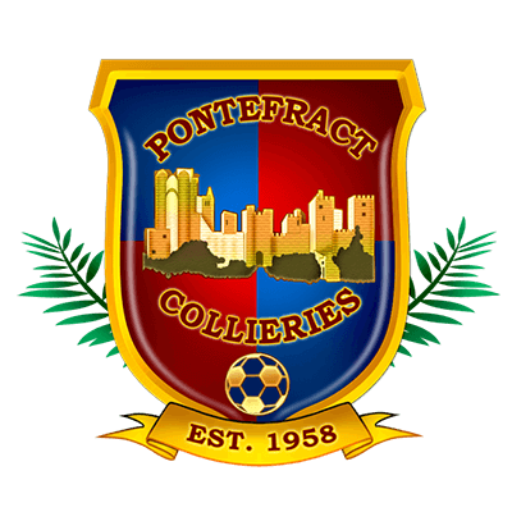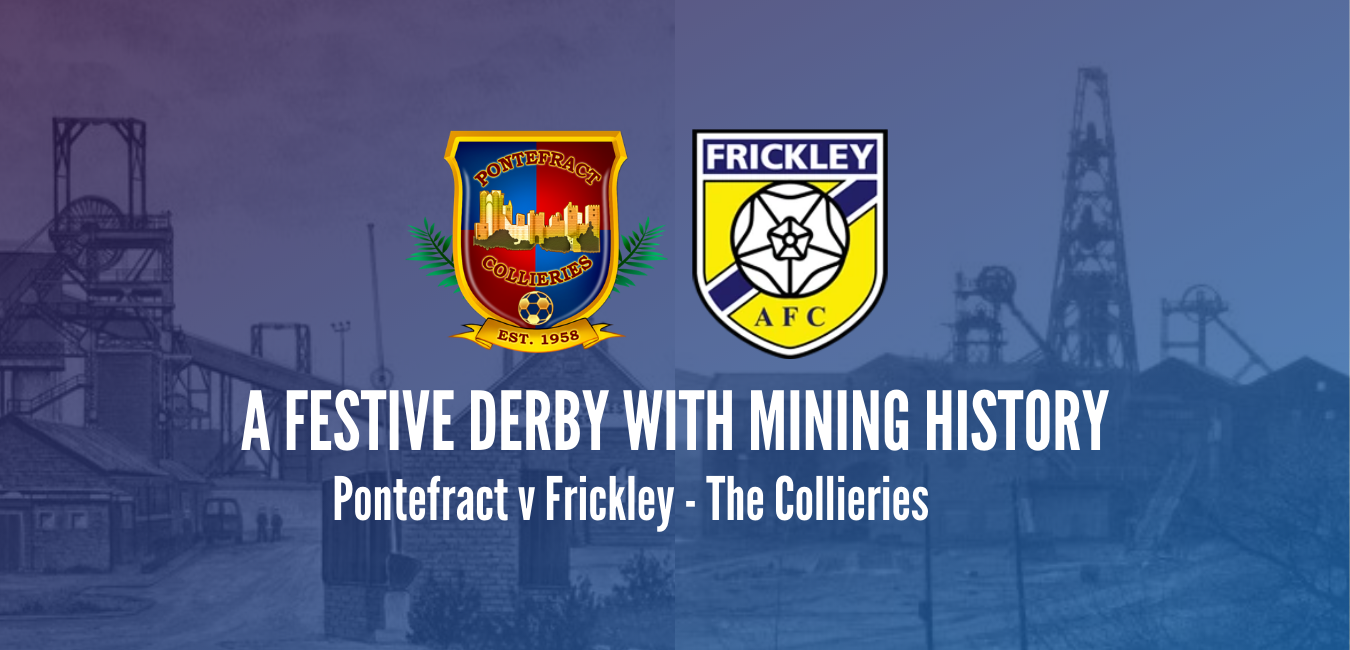As we prepare for a Festive West Yorkshire Derby between ourselves (Pontefract Collieries) and local rivals Frickley Athletic, we take a closer look into the history of both clubs as they share one big historic link.
Both Football clubs were formed by the lads of local Collieries whilst Frickley in recent years have been known as Frickley Athletic, they were formerly known as Frickley Colliery Athletic as they formed one arm of the Frickley Athletic Club back in the 1900s. Pontefract still proudly wear their colliery history keeping the Collieries name since the 1950s.
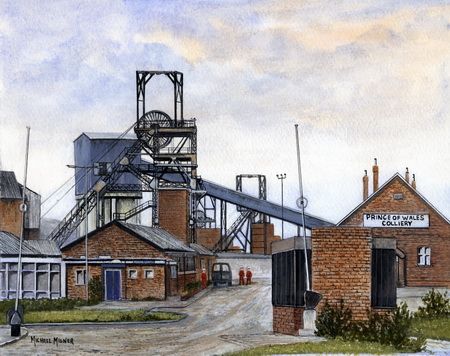
First we shall take a walk back in history to look at Coal Mining in Pontefract. In 1870, John Rhodes received a lease to mine coal underneath Pontefract Park and mining at Prince of Wales Colliery began two years later. Prince of Wales changed hands to Pontefract Collieries Ltd and was then nationalised in 1947. In 1977, a new drift mine was built at Prince of Wales. The redevelopment gave the colliery a much longer projected life. The colliery became a ‘receiver pit’ – miners whose pit had closed were transferred from as far away as Scotland and Wales. Prince of Wales was sold by British Coal to RJB Mining in 1995, before being closed in 2002. (Information as per https://www.coalandcommunity.org.uk/princeofwales).
The current Football Club was formed in 1958 enjoying considerable success on and off the field, much work being done during the miners’ strike cemented relationships with the mining industry and the local community. Pontefract’s ground, built up at the time of the 1984-85 Miners’ Strike was built by the miners themselves, whilst works in recent years have been carried out the stadium still shows some of their work today! The floodlight opening in 1987 saw the Colls take on Hull City in a friendly watched by a record crowd of 1,000, a former record attendance until recent years.
We spoke with John Vaughan who was able to relay stories of his father Arthur ‘Sonny’ Vaughan and his grandad Arthur Vaughan. Sonny worked as a Coalface Worker who would work as part of a team in producing coal, working on supporting the mine with Roof Supports, transportation of the coal and much more! When filling in for a co-worker one Saturday Sonny found himself trapped after part of the mine collapsed on him, upon being dug from beneath the rubble his response was a simple as “Will you get me out of here before more falls on me!” Upon the drift mine being built Sonny was able to move into the time office until he later retired. Sonny’s father Arthur also worked at the pit, where he had a closer link to The Collieries football team we know today, he was the Physiotherapist for the Football Team.
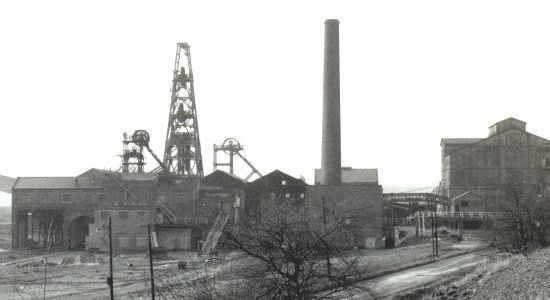
The first sod was cut at the Frickley & South Elmsall Colliery on 23 April 1903 of shafts No.1 and No.2 and the Barnsley Bed was hit on 23 May 1905 at a depth of 606 m. Despite being located in South Elmsall, the colliery was sunk within the land of Frickley Hall, part of the small Hamlet of Frickley, hence the Frickley name. The Colliery was home to welfare schemes which included a maternity home, medical service, recreation ground, swimming baths and other sports facilities including the formation of Frickley Colliery F.C. later Frickley Athletic F.C. and Frickley Cricket Club, as part of the Frickley Athletic Club. (Information as per https://en.wikipedia.org/wiki/Frickley_Colliery).
We were able to speak to John Murphy who is a former deputy of the Frickley Colliery, he started his working life at Upton Colliery where he gained his qualified before joining the Navy. He later returned to West Yorkshire with his wife and returned to Frickley where he started working at the pit. He recalled a percentage of his wages going towards charities but in particular around a Tuppence/threepence would go to the Colliery Athletic Club and in return they would receive a season pass.
John living between half a mile to three quarters of mile from the stadium, he recalled hearing the roar of the crowds on matchday especially when a goal would go in. John later became a deputy at the Colliery thanks to his earlier work at the pit in Upton. John’s father in law – Harry Webb – worked in the pit during the 1960s. He worked on the pit top, but was also a keen Sportsman and a Cricket umpire and Football Referee. He would often officiate down at Frickley Colliery for their games. One Saturday Harry he had been working in the morning for a little bit of extra money and in the afternoon he was refereeing a fixture at Frickley – where he was officiating some of his colleagues from earlier in the day. One of his colleagues had fouled his opponent and he pulled him over to give him a booking. Harry asked him for his name only to be met with “Harry what do you mean? I have been working with you this morning you know my name!” A real stickler for his professionalism!
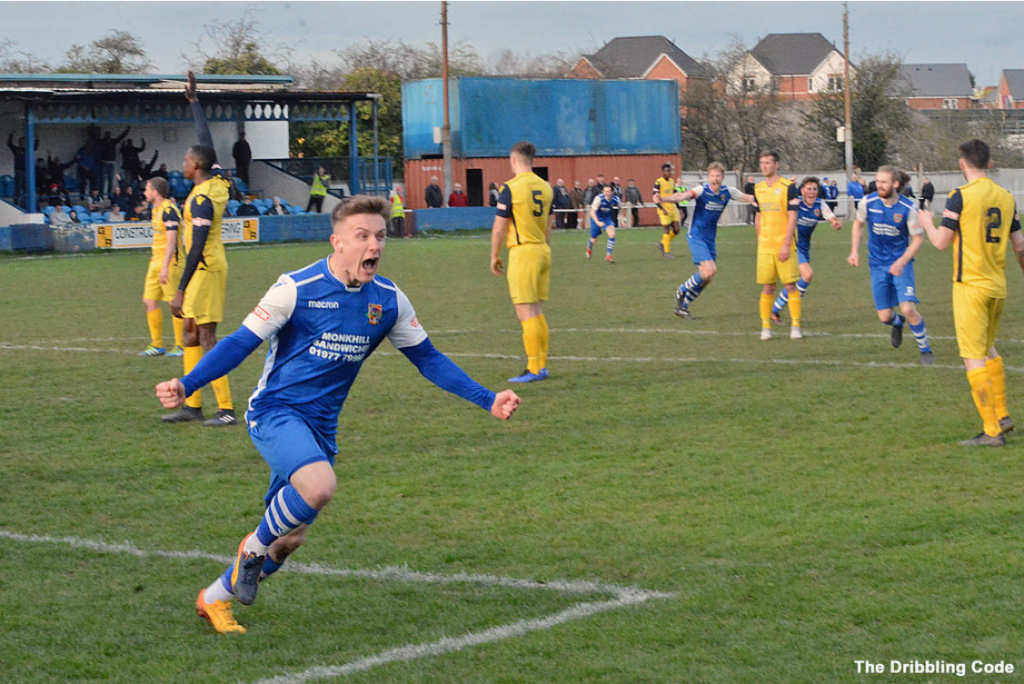
The two clubs had faced one another in friendly games but had not faced one another in competitive football until recent years.The first meeting in league action was December 2018, where Ponte ran out 3-2 winners – Spencer Clarke scored twice and an Eli Hey goal in between sealed a big win. When the sides met again in 2019 it was another close affair with a four goal draw at Pontefract Collieries, it was our recently returned forward Nick Guest who scored a 90th minute leveller. (Image Courtesy of The Dribbling Code)
We should be in for a fantastic encounter between two sides only three points apart in the league this season, with Ponte on the up on recent form and Frickley the opposite. But in these games, form goes out of the window!
If you haven’t been to watch either side in recent years, now more than ever is a great time to return. We shall see you there!
